Sue Taylor Middle School in the remote village of Diorila has long had a problem – too few teachers for the number of students. Imagine a school with 90 middle school students, and one teacher! Mali Rising Foundation decided we needed to work with the village to address this problem.
Chatting Around a Dish With the Girls' Project Girls
As part of the Girls’ Project work, each spring we organize a session on eating and cooking healthy, local foods. This session includes preparation of a group meal with the girls. But the session is not only about food – cooking and eating together gives us a great, informal way to talk and share. While we wait for the meal to cook, we share stories around the table. Each girl tells a story that marked her, and shares her dreams and her goals. This is a very important activity that allows girls to confide and share their experiences.
Discussing Gender Violence: Boys & Girls
As we work to help girls succeed in school, we know a good relationship between girls and boys is very important for the success of girls. In Mali, school-based violence is a large-scale problem with harmful consequences for girls, but also for society as a whole. The violence suffered by girls affects their learning, their physical and mental health, their personality and their future. That’s why February’s theme for the Girls’ Project meetings was Stopping School-based Violence.
Why Chalkboard Art Matters
As we start to get closer to the end of the school year, I’ve been talking with our teachers about the Chalkboard Art Contest. This is a chance for teachers to show off how they use the primary teaching tool in a Mali classroom — the chalkboard. Our teachers create beautiful maps, diagrams, and more to help students learn. I asked one of our teachers, Mr. Mariko, to share his thoughts on the contest and the value of chalkboard art.
One Teacher Dives In On Peer Meetings
Earlier this month, Mali Rising hosted one of our Teacher Peer Meetings – gatherings of 7 or 8 teachers from different schools who learn from each other for the day. Teachers volunteer to present a sample lesson and their peers critique their work – providing both positive and constructively negative feedback. After this most recent Peer Meeting, I talked with one of the participating teachers, and recorded his thoughts on the peer meeting and his work…
One Boy's Thoughts On Girls' Education
Most of my work focuses on helping Mali Rising’s teachers, but I always enjoy it when I get a chance to be part of the Girls’ Project. My role is to host discussions about girls’ education with boys in our Girls’ Project villages. My goal is to inspire the boys to be allies to their sisters and female classmates and speak out to support their education. At a recent meeting, I found a young man — Sirbiry Doumbia — who was already an avid supporter of girls’ education. Here’s what he told me….
One Teacher Amazes His Peers
Lamine Mariko is an incredible science teacher at Christiana Norris Middle School. But don’t take my word for it – his teacher peers made that clear when they gave him a big round of applause at our most recent Teacher Peer Meeting!Lamine Mariko is an incredible science teacher at Christiana Norris Middle School. But don’t take my word for it – his teacher peers made that clear when they gave him a big round of applause at our most recent Teacher Peer Meeting!
Mothers Standing Up for Girls
By Hindaty Traore, Girls’ Project Manager
It's a Friday morning under a blazing sun in the village of Sankama – home to Judge Memorial Middle School. A group of more than forty people sitting in the school’s Grade 8 classroom with me sat right in front. In front of the crowd, I lead a meeting with the mothers of students in Sankama, a member of the school management committee, and the school principal.
All families are committed to the academic success of their children. However, this success depends on the dialogue between school staff and parents as well as their involvement in supporting their children's education.
To be able to monitor their children's schooling, parents must be well informed of the results, but also of their child's academic behavior. All of these rights were reminded to the mothers during the meeting.
The involvement of parents is very important in the education of girls, especially that of mothers. In Mali Rising Foundation partner villages, we have noticed that parents are less interested in monitoring their children. Everyone sends their child to school but do not know that they have a role to play for the success of their child.
To help change this dynamic, we decided to organize meetings with the women each village to discuss the importance of their involvement in the education of their daughters and how they can do it. We also explained the importance of girls' success for families and the country as a whole. Through the various interventions, we found that mothers do not go to school to know the progress of their daughters, do not follow them at home, and give the girls a lot of domestic work which limits their ability to study.
In our partner villages, women's modest incomes do not allow them to hire someone to help them with housework, so girls help their mothers every day. This means that girls devote less time to schoolwork than school. They have less time to learn and do their homework and this negatively affects their school performance, sometimes causing dismissal or dropping out.
Through our various discussions, the women learned how to help her daughters at home after school, how to go to school each month to check on her child's progress, how to lighten the housework to give time to study and learn.
For the best functioning of the involvement of the mothers of students, we have agreed to hold two meetings a year for the women to discuss their issues and problems. In between these meetings, the women leaders in each village will also remind the mothers of students to follow and give time to their daughters at home, to check in with the school on their daughters’ progress, and other basic strategies.
Sali Diawara's two daughters study at Judge Memorial Middle School in Sankama. Sali says she is involved in the education of her daughters. She explains: “I don’t give my daughters chores when they have to go to school. They only help me on weekends. I would also like them to take private lessons but unfortunately I don’t have enough means.”
Sali herself had the chance to go to school. But she could not continue her schooling because of an early marriage, and she wants her daughters to have a different fate from hers. Thanks to her commitment, her daughters obtain good results -- they are always among the best in their classes. This story encouraged other women at the meeting to do like Sali so that their daughters could succeed too.
The teaching staff of the school also want to help reduce the household responsibilities of girls. Ibrahim Diarra is the principal of Judge Memorial Middle School in Samkama. With his colleagues, they want to organize at least one meeting with parents and traditional and religious leaders to encourage them to support girls' education.
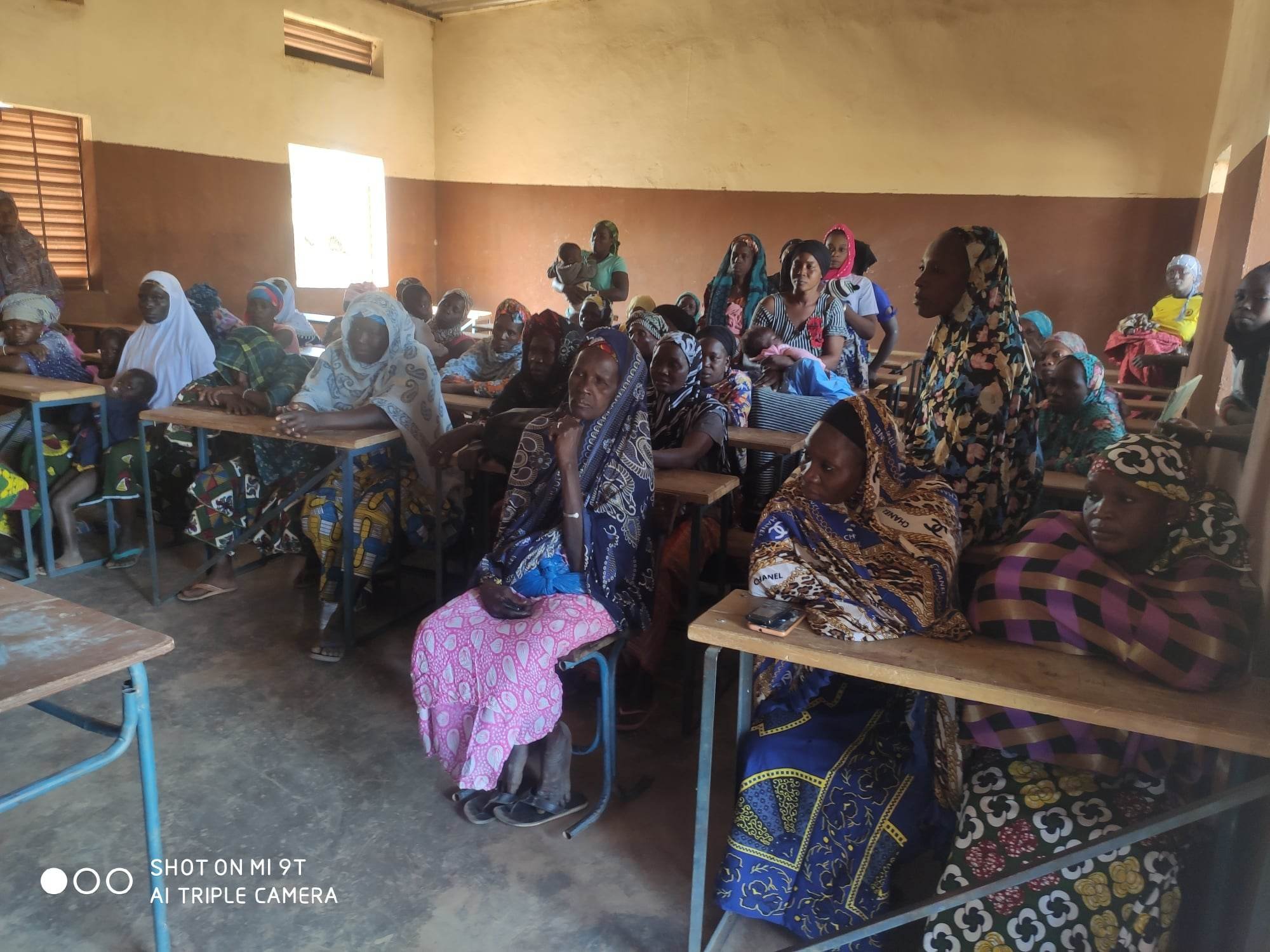
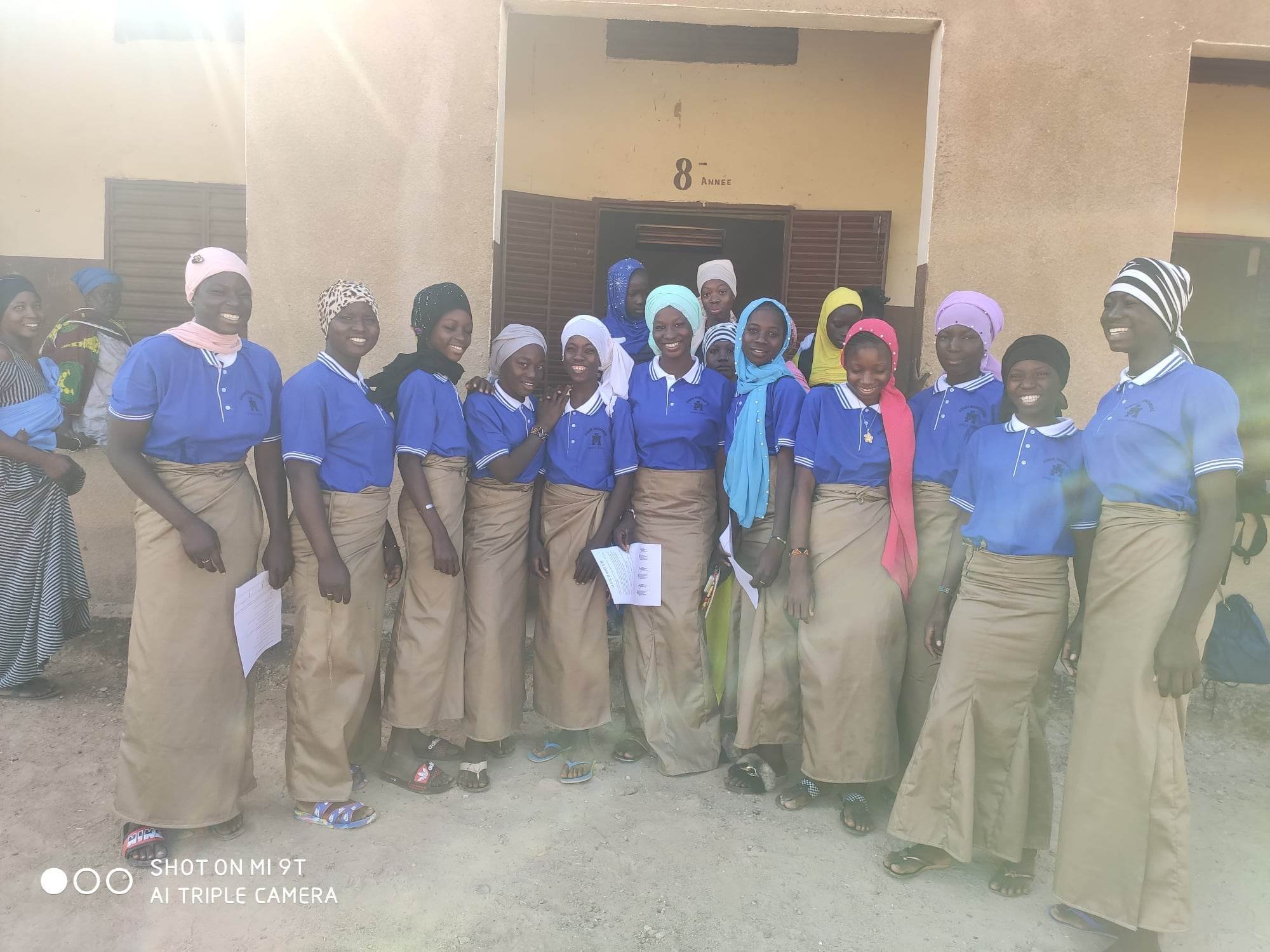
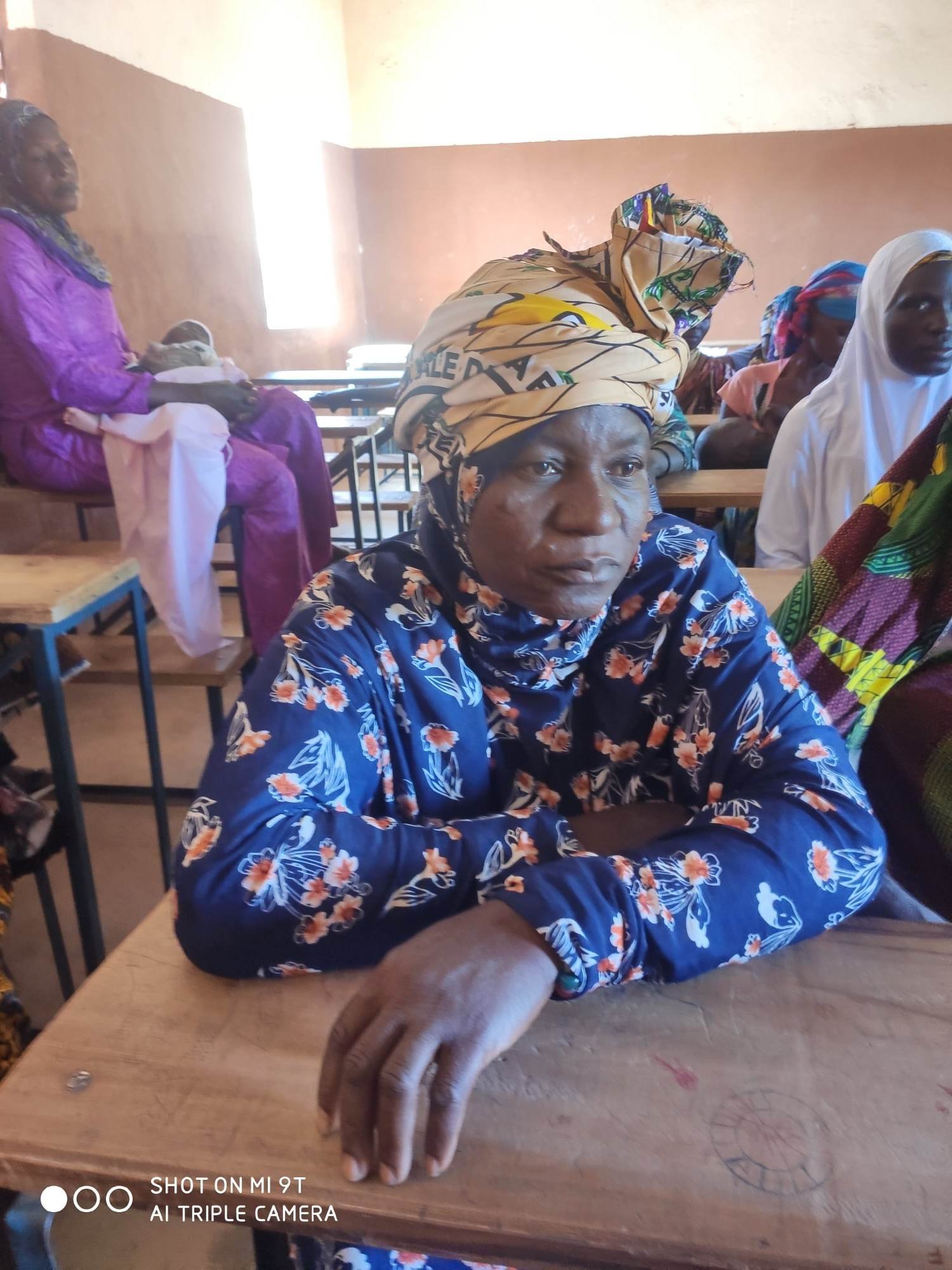
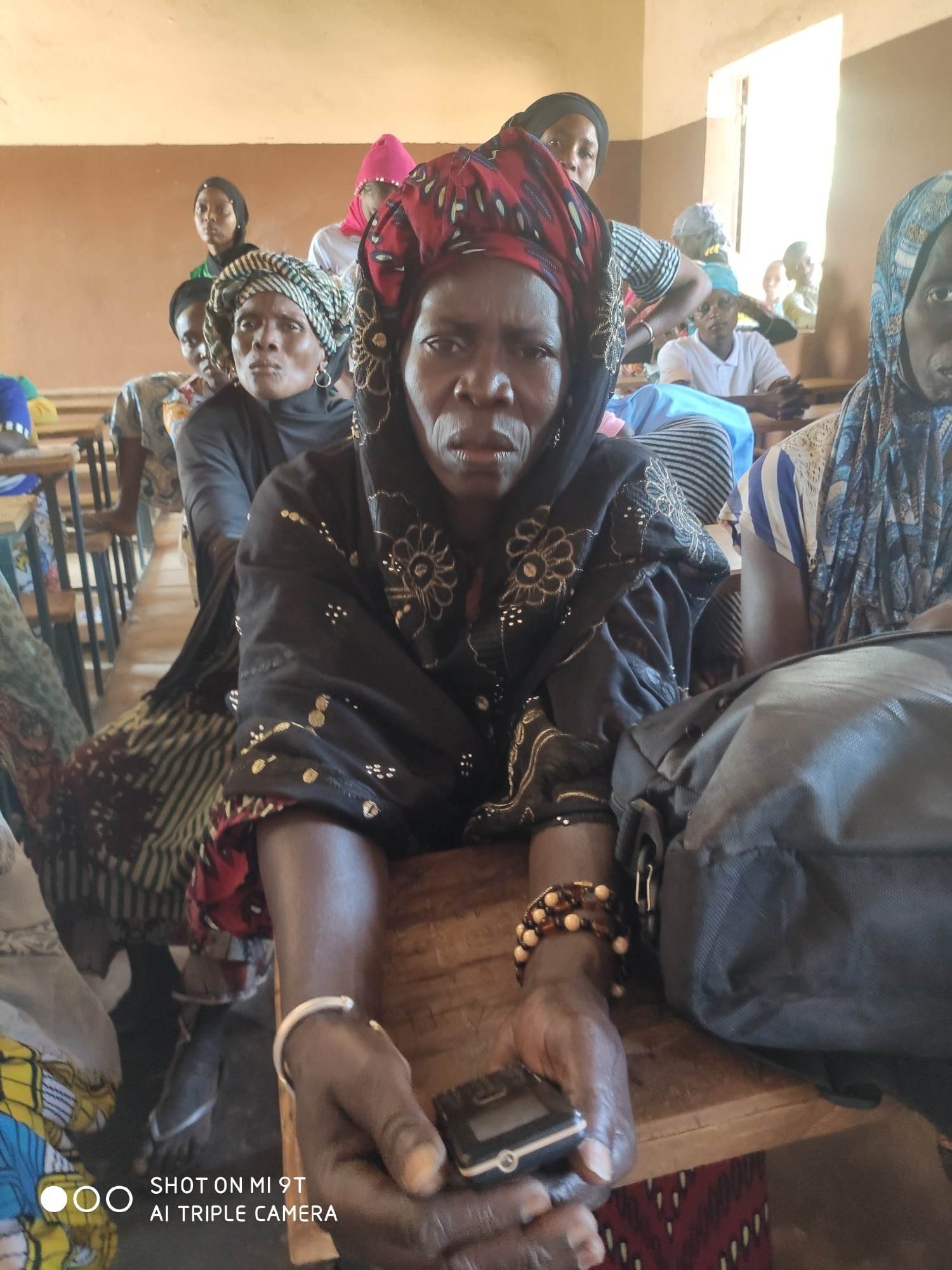
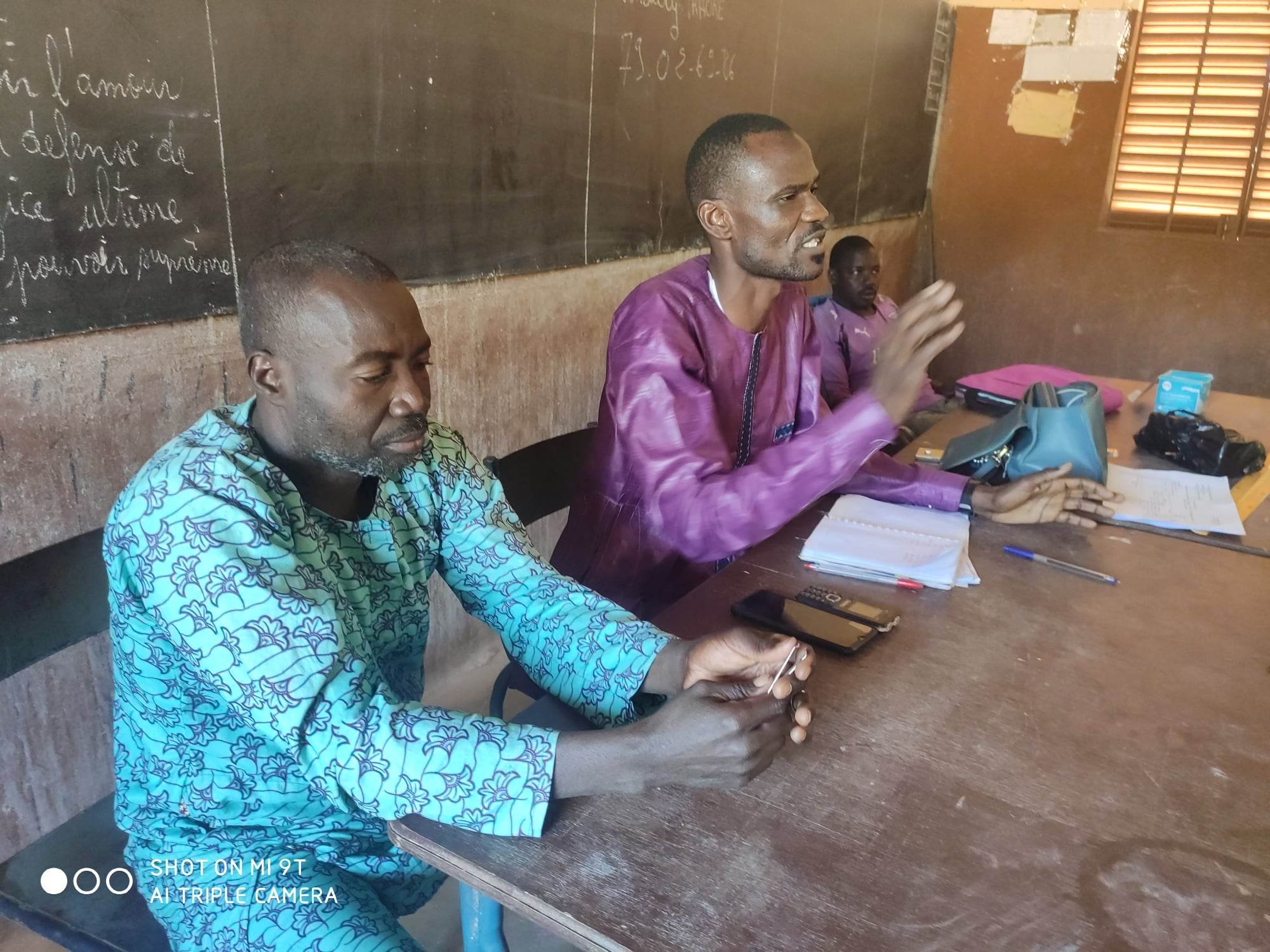
Mr. Diarra explains: “We will raise parents’ awareness of the need to reduce girls’ workload so that they have time to devote themselves to their studies. This is important for their academic success.”
Mah Coulibaly is a housewife in Sankama. She lives with her husband and children. They have two daughters at school. She says: “We don’t have enough resources. My daughters sell my wares. They also help me with other activities. I am aware that this affects their studies. But, I have no one else to help me. I would try to do everything possible to give them time to learn the lessons.”
I drew inspiration from my own story to raise awareness of how girls have more time for their studies when they don't need to spend too much time on household chores. I explained that I help the girls today because I was able to focus on my studies. We concluded our meeting with a short quote “When girls fail, the whole your community has failed, because it is your duty to ensure a better future for them.”


